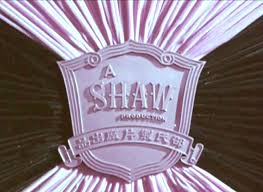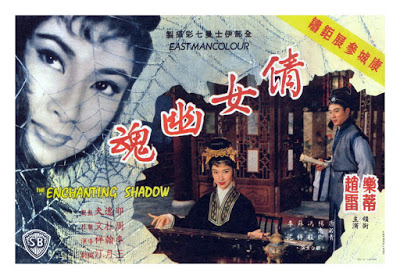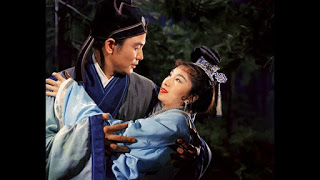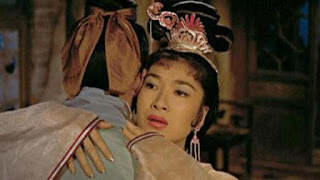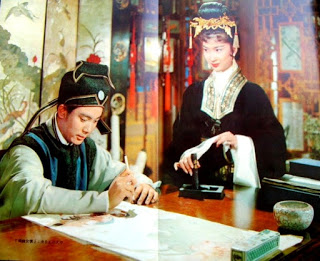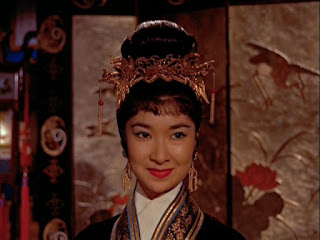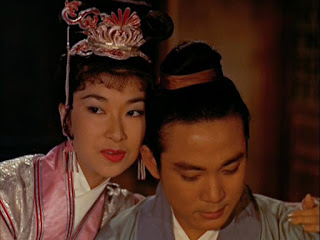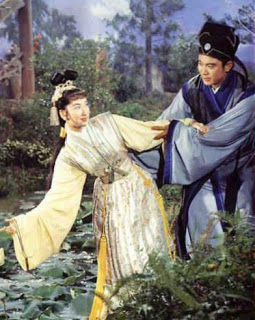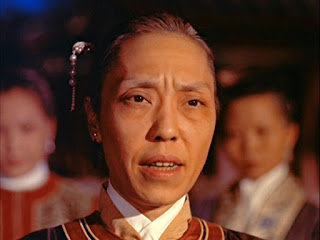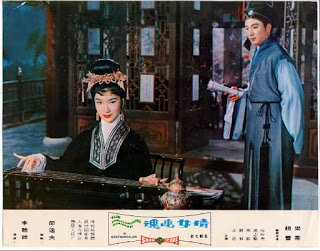The Enchanting Shadow
Director: Li Han-hsiang
Year: 1960
Rating: 7.5
I have been on a small Shaw Brother's kick - first ones
I have seen in years and it is great to see some of them again. Back when
I was working and had money I bought over 300 of the Celestial DVDs as they
came out - a good thing as I think many of them are now unavailable which
is a shame. I have yet to see a majority of these DVDs so good to make a
small dent. It is such a great legendary chunk of film history. I actually
get the Shaw Brothers channel here in Bangkok but sadly no English subs.
They need to open one on a cable channel in the USA.
The Enchanting Shadow was produced by the Shaw Brothers based on a short
story within Strange Tales from a Chinese Studio written back in the 1600s.
The author Pu Songling (1640 - 1715) wrote nearly 500 of these tales in narrative
or poem form and though the book was never officially published he shared
these tales with friends and after his death they were collected and became
a classic of Chinese literature over time.
Songling was an academic and scholar who throughout his life attempted to
pass the tests to join the civil service but never succeeded. Just one of
those people who didn't do well in tests I guess! So as he studied he made
a living for his family from tutoring and work as a private secretary - and
had the time to write. His stories derived from various sources generally
delved into the fantastic and the supernatural - relationships between men
and ghosts, fairy and fox spirits. The short story that this is based on
is titled Nie Xiaoqing though in English translated works it is The Magic
Sword and the Magic Bag.
These were first translated into English back in the 1880's by Herbert Giles
(1845 - 1935) but taking into account the times he lived in Giles was sort
of the Breen Office of his time - striking out of his translations all the
sexual content - of which I understand there is a fair amount of human-other
going on. This is available on Kindle for very little. I bought the John
Minford translation of the better known stories - I don't want to miss al
the crazy sex - and read the story - for not only is this film based on it
but so is one of my all-time favorite Hong Kong films, A Chinese Ghost Story
from Tsui Hark.
It is an interesting read – not just for the story itself but for the matter
of fact manner it is told in which men and ghosts fall in love and it is
no big deal. The Enchanting Shadow is much more faithful to the literary
source than is A Chinese Ghost Story in which Tsui takes the general outline
and then explodes it into a thousand stars full of heroics, demons, a trip
to hell and so forth. This was partially due to simply how film had changed
from 1960 to 1987 with great advances in not only special effects but also
great changes in audience taste. Enchanting Shadows is very formal, low-key
– classical in look and demeanor – with next to no special effects.
But neither film follows the story to the end cutting it off when the protagonist
buries the bones of his love elsewhere. In the Pu Songling tale, he takes
her bones back home, buries them, she immediately comes back to form, she
meets his mother and convinces her to allow this poor ghost to stay and help
with the household chores and after the death of the protagonist’s wife (which
he does not have in either film version) they get married, have children
and live happily ever after! And no one seems to care. That is true diversity!
This was directed by the master of period films for the Shaw Brothers – Li
Han-hsiang with films such as the Kingdom and the Beauty, Yang Kwei-fei,
Love Eterne, Beyond the Great Wall, The Empress Wu Tse-tien – before he was
to move into exploitation films in the 1970’s. He brings his painterly eye
to the canvass with great period detail making it look sumptuous and with
the simple use of sets, music and nightly fog creates an atmosphere of mystery
and the supernatural.
Into this setting one day walks Ning (Chao Lei), a good man and scholar unable
to find work in a corrupt civil service system (sounds familiar) and unable
to find a room at an inn in the local town. So people tell him there is room
at a nearby temple – of course it isn’t perfect – no room service, running
water and oh yes it is haunted. He of course goes. He meets another man staying
there – a gruff older man (Yang Chi-ching) who keeps his distance from people
but not so from his sword.
Later that night Ning hears the playing of a string instrument and follows
the sound to a lovely villa next door where a beautiful woman (Betty Loh
Tih) is strumming it and composing poetry out loud – he is of course enchanted.
Perhaps more so when she comes to his room the next night and does everything
a woman can to seduce him – including setting her dress on fire. It almost
works but he resists – not a chance in Hell I would have refused Betty Loh
Tih – and sends her away. It is good he did because she was going to get
him ready for the female demon (Tong Yuek-ching) who controls her to suck
out all his blood. Love needless to say is in the cards.
It is a very enjoyable film though quite slow moving, artistic and not any
fireworks – Ning is no hero in this version – rather a lost but good man
who is remarkably passive throughout – and apparently the only girl he can
get in the world is a ghost who is setting him up for a meal. But then it
is Betty Loh Tih.
